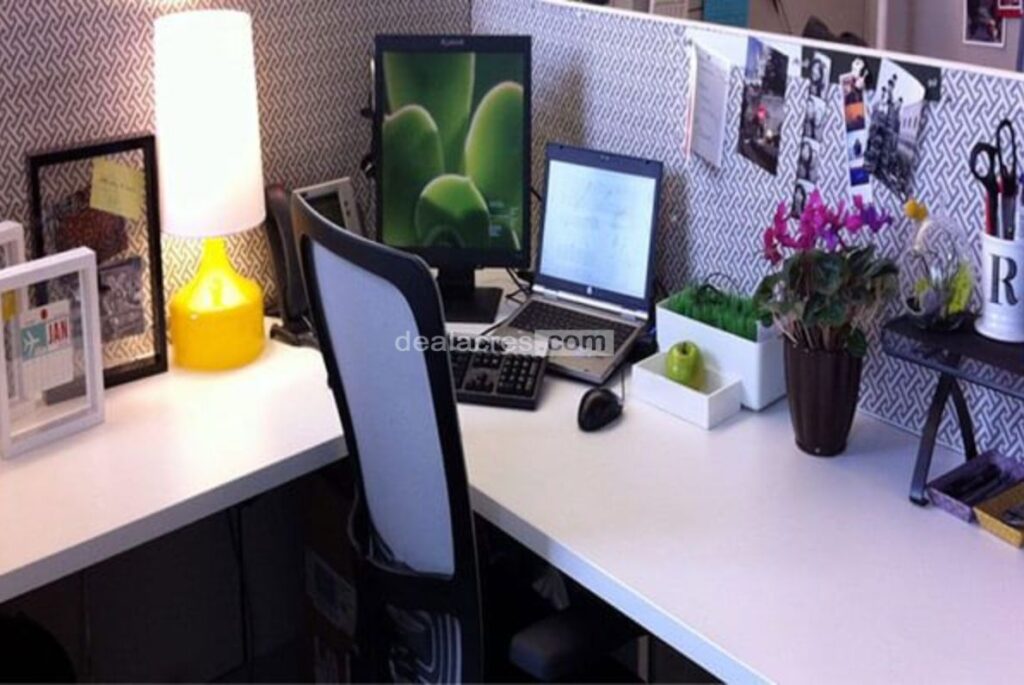Introduction:
The open office concept, with its bustling atmosphere and constant interactions, can be challenging for introverts. But fear not, fellow introverts! This guide is here to provide simple and practical tips on not just surviving but thriving in an open office environment. Let’s explore how introverts can maintain their focus, recharge their energy, and foster positive interactions while working in an open office space.
Understanding Introversion:
First things first – let’s understand introversion. Introverts gain energy from quiet and solitude, often feeling drained by prolonged social interactions. Recognizing and accepting your introverted nature is the first step towards adapting to the open office setup.

Personalizing Your Workspace:
Make your workspace your own. Add personal touches like plants, pictures, or soothing colors to create a comfortable environment. Having a space that feels uniquely yours can provide a sense of security in the midst of the open office chaos.
Strategic Desk Placement:
If possible, strategically place your desk to minimize distractions. Consider positioning it away from high-traffic areas or facing a wall to reduce visual stimuli. This simple adjustment can create a more secluded feel within the open space.
Noise-Canceling Headphones:
Invest in noise-canceling headphones. These can be a game-changer in drowning out background chatter and creating a focused zone. Listening to soft music or ambient sounds can also help introverts concentrate amidst the open office buzz.
Establish Clear Boundaries:
Communicate your need for focused work time with your colleagues. Establish clear boundaries by signaling when you’re in a “do not disturb” mode, such as wearing headphones or using a designated signal. This non-verbal cue helps set expectations.
Utilize Breakout Spaces:
Take advantage of breakout spaces or quiet corners within the office. When you need a break from the communal workspace, these areas provide a retreat for introverts to recharge without the need for complete isolation.
Effective Time Management:
Practice effective time management to maximize your productivity during focused work periods. Set specific time blocks for concentrated tasks, interspersed with short breaks. This structured approach allows introverts to navigate the open office rhythm more efficiently.
Leverage Digital Communication:
Embrace digital communication tools. For introverts, written communication can be less draining than face-to-face conversations. Utilize email, instant messaging, or project management platforms to convey information and collaborate with colleagues.

Scheduled Quiet Time:
If your workplace allows flexibility, consider scheduling “quiet time” blocks during the day. This dedicated period allows introverts to work without interruptions, fostering a balance between collaborative and individual-focused work.
Advocate for Flexible Work Arrangements:
Explore the possibility of flexible work arrangements. Some introverts thrive in remote or telecommuting setups. Discuss options with your supervisor to find a balance that accommodates your need for solitude without completely abandoning the open office setting.
Establish Clear Communication Channels:
Clearly communicate your preferred channels for discussions and updates. Whether it’s through email, messaging apps, or scheduled meetings, establishing a routine for communication helps introverts manage social interactions more comfortably.
Embrace Non-Work Interactions:
While it’s essential to carve out quiet spaces, don’t completely avoid social interactions. Embrace non-work-related conversations during breaks or informal gatherings. These moments contribute to building positive relationships with colleagues.
Mindful Use of Common Areas:
Be mindful of common areas like the kitchen or lounge. These spaces often serve as social hubs, and introverts may feel overwhelmed by the constant chatter. Plan your visits during quieter times or choose less crowded alternatives.
Develop a Support System:
Connect with like-minded colleagues who understand and respect your introverted tendencies. Having a support system within the office can make navigating the open space more enjoyable and less isolating.
Prioritize Self-Care:
Prioritize self-care to manage energy levels. Introverts may find it helpful to take short breaks in quiet spaces, practice deep breathing exercises, or engage in activities that provide moments of solitude to recharge.
Set Realistic Expectations:
Recognize that open offices are dynamic environments, and adapting to them takes time. Set realistic expectations for yourself, and acknowledge that occasional discomfort is a part of the adjustment process.

Participate in Team-Building Activities:
Engage selectively in team-building activities. While large social gatherings might be overwhelming, smaller, more intimate activities can provide opportunities to connect with colleagues on a personal level.
Provide Feedback:
If aspects of the open office setup are particularly challenging, provide constructive feedback to your supervisor or HR department. Suggesting minor adjustments, such as designated quiet hours, can contribute to a more inclusive workspace.
Continuous Reflection:
Engage in continuous self-reflection. Understand what strategies work best for you and adapt as needed. The open office environment is dynamic, and finding the right balance requires ongoing awareness of your own needs.
Celebrate Your Strengths:
Lastly, celebrate the strengths that introversion brings to the workplace. Introverts often excel in deep concentration, thoughtful problem-solving, and empathetic listening. Recognize and appreciate these qualities as valuable contributions to the team.
Conclusion:
Surviving and thriving in an open office concept as an introvert is not only possible but achievable with the right strategies and mindset. By creating a personalized and comfortable workspace, setting boundaries, leveraging technology, and prioritizing self-care, introverts can navigate the open office environment successfully. Embracing the strengths that introversion brings to the table contributes to a positive and collaborative workplace experience. Remember, you’ve got unique qualities that enrich the workplace – it’s about finding the balance that allows you to shine while staying true to your introverted nature.




